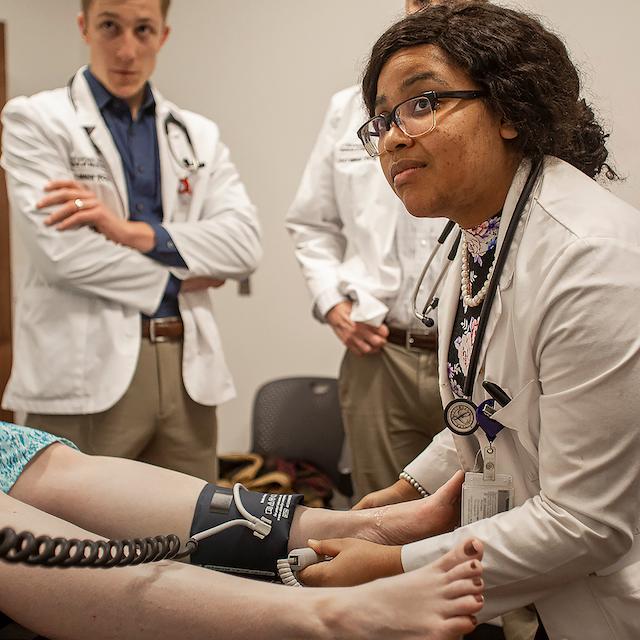
Medical School Launches New Residency Program
The TCU and UNTHSC School of Medicine is partnering with Texas Health Resources to support more residency programs at local hospitals and further promote growth of the physician workforce in North Texas. This will both enhance the education of the medical students and help address a local physician shortage.
All medical school graduates must complete a residency program – or graduate medical education (GME) – to be licensed to practice medicine in the United States. GME comprises the second phase – after medical school – of the formal education that prepares doctors for medical practice. During residency, doctors learn skills and techniques specific to their specialty under the supervision of attending physicians and serve as part of care teams.
“Texas Health and the TCU and UNTHSC School of Medicine are committed to serving our communities and building a stronger, healthier future for all,” Teresa Abi-Nader Dahlberg, TCU provost and vice chancellor for Academic Affairs, said. “Our focus on inspiring physicians to be Empathetic Scholars™ pairs perfectly with Texas Health’s focus on improving the health and well-being of our community. This partnership expands opportunities and builds our community’s bench of excellent physicians.”
According to the National Residency Matching Program, nearly three-quarters of medical school graduates prefer to enroll in a residency program affiliated with a medical school. This makes collaborations such as the existing residency partnership with Baylor Scott & White All Saints Medical Center – Fort Worth and the addition of a partnership with Texas Health attractive for the medical school.
“Texas Health has been an incredible partner, and we are honored to work together with these leaders in health care to create excellent GME opportunities,” said Dr. Stuart D. Flynn, dean of the TCU and UNTHSC School of Medicine. “Our focus on inspiring physicians to be Empathetic Scholars™ pairs perfectly with Texas Health’s focus on improving the health and well-being of our community.”
Development of GME programs is an integral step toward retaining physicians in North Texas. In Texas, 67 percent of residents stay in-state after training. That number jumps to 81 percent if they also attend medical school in Texas. This is especially important in the wake of a pandemic that has exacerbated the need to accelerate growth of the physician workforce.
“A steady pipeline of well-trained physicians is vital to serving our fast-growing region,” said Barclay Berdan ’76, CEO of Texas Health. “I’m proud of the collaboration between Texas Health and the TCU and UNTHSC School of Medicine. As we increase the number of residents training at Texas Health, this partnership creates new avenues for educational activities, faculty engagement and research initiatives that will enhance our GME programs and help improve the health of the shared communities we serve.”
Read more in TCU Magazine about Berdan and his leadership in local health care, and watch Berdan’s and Flynn’s video.
